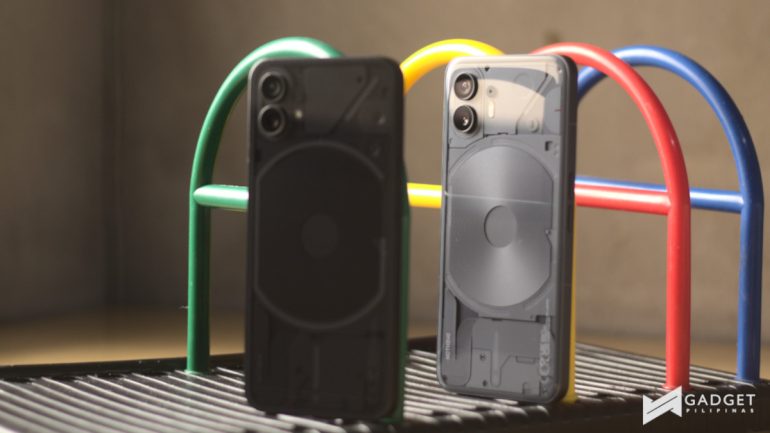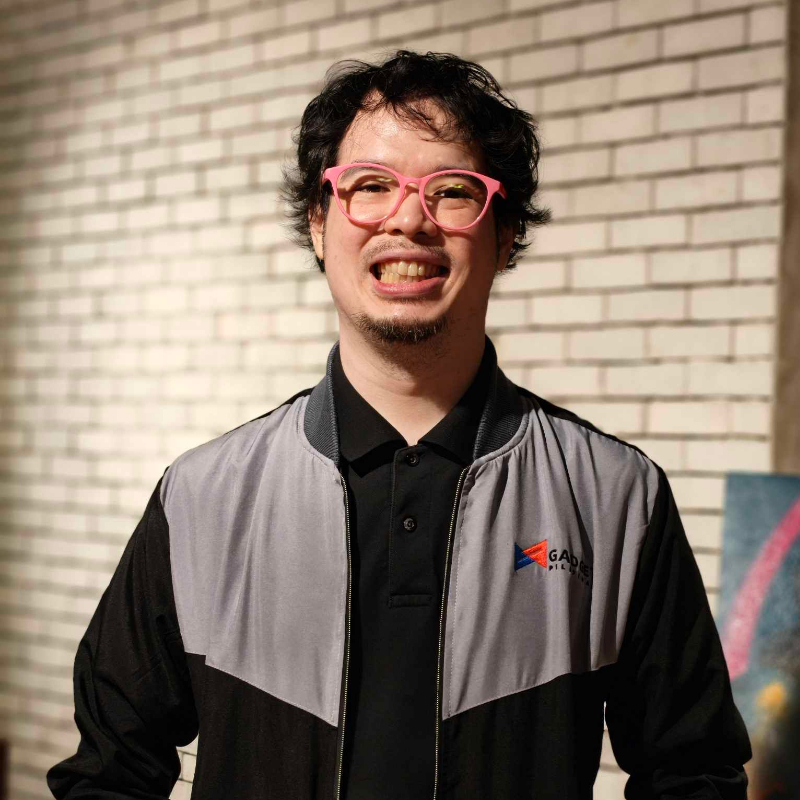Nothing has been impressive with its devices whether it be the Ear (1) and Ear (2) or the Phone (1) and Phone (2). But we were curious how the Nothing Phone (2) fared in terms of optics against its predecessor.
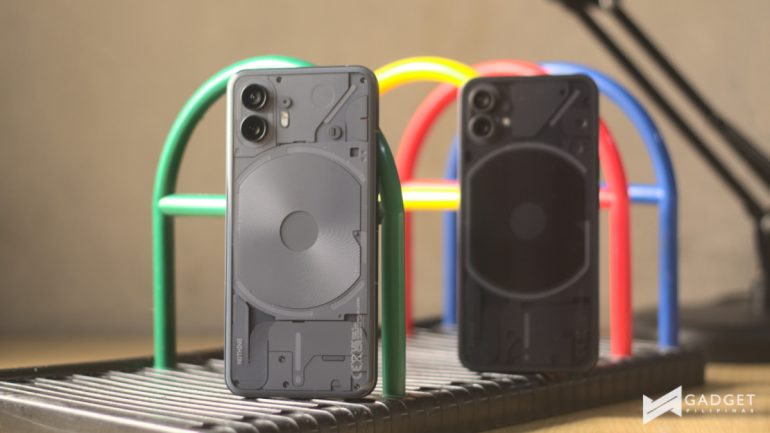
We understand that the cameras themselves were clearly upgraded, namely the main rear sensor and the front camera, but we decided to take a closer look at how they fare in the real world.
For a bit of transparency, as of writing this, the Phone (2) runs on Nothing OS 2.0.2a which has already introduced quite a number of camera tweaks and fixes. Meanwhile, the Phone (1) runs on Nothing OS 1.5.6.
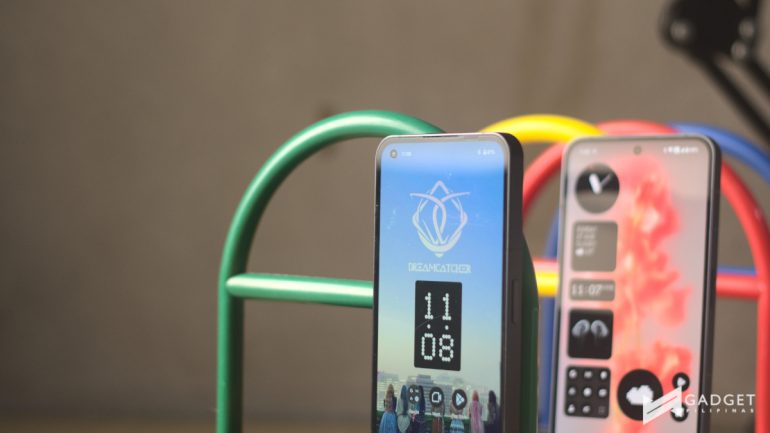
Before we get to it, here’s a reminder of the specs of the Nothing Phone (2) and Phone (1):
| Nothing Phone (2) | Nothing Phone (1) | |
| Display | 6.7-inch FHD+ LTPO OLED 120Hz refresh rate | 6.5-inch FHD+ OLED 120Hz refresh rate |
| Processor | Snapdragon 8+ Gen 1 | Qualcomm Snapdragon 778G+ |
| RAM | 8GB/12GB | 8GB |
| Storage | 128/256/512GB | 128/256GB |
| Rear Camera | 50MP main (Sony IMX890) 50MP ultrawide (Samsung JN1) | 50MP main (Sony IMX766) 50MP ultra-wide (Samsung JN1) |
| Front Camera | 32MP (Sony IMX615) | 16MP (Sony IMX471) |
| Battery | 4700mAh 45W fast charging 15W wireless charging 5W reverse charging | 4500mAh battery 33W wired fast charging 15W wireless charging 5W reverse charging |
| OS | Nothing OS 2.0 (Android 13) | Nothing OS (Android 12) |
| Colors | Gray White | Black White |
Nothing Phone (2) and Phone (1) – Main Camera
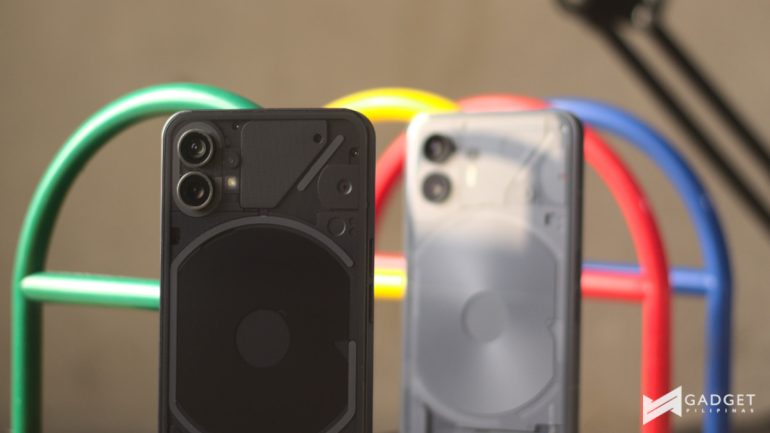
We start with the main camera which is upgraded to the Sony IMX890 sensor on the Phone (2) compared to the Sony IMX766 on the Phone (1).
Outdoors with good lighting the Phone (2) offers good detail and a nice boost in color compared to its predecessor.
The difference though changes when you have more objects in your photo, even with good lighting.
As you can notice in the photo below, the chandeliers from the Phone (1) lack the sheen and detail compared to the Phone (2). Additionally, the light sources like in the shop on the left and near the escalator are a bit warmer in the shot from the Nothing Phone (2). The yellow hue not only gives the photo more life but also makes the shot more accurate to the afternoon light.
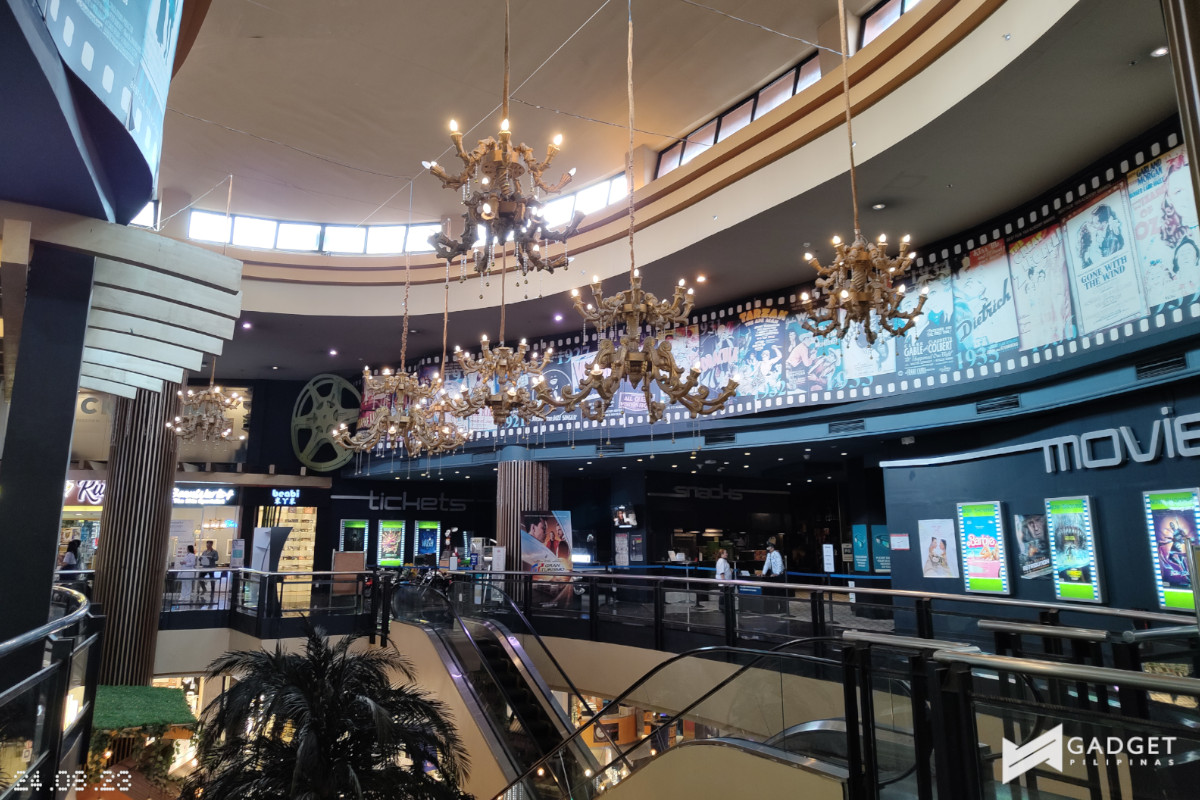
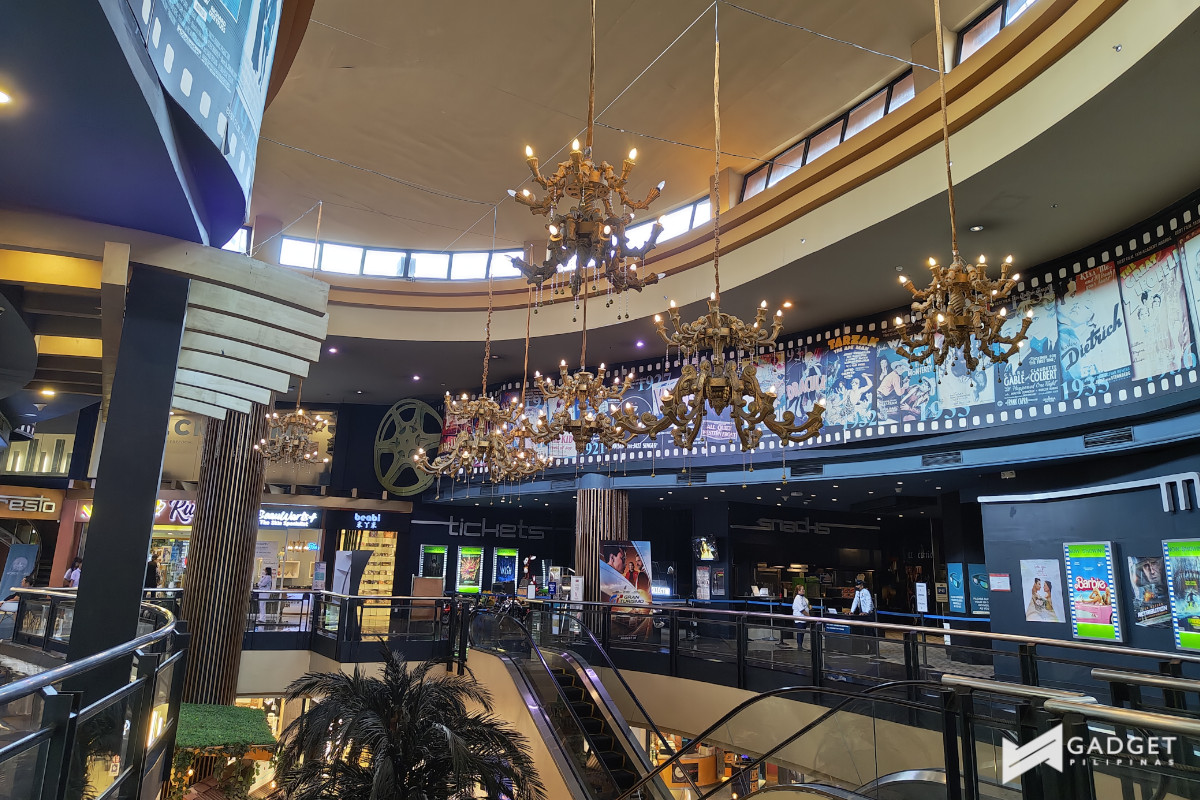
These are what I assume is an improved higher dynamic range than its predecessor and this is more apparent as you look at the windows on the ceiling. On the Phone (1), the light bleeds through and almost loses the windows. Meanwhile, on the Phone (2) you can still the windows.
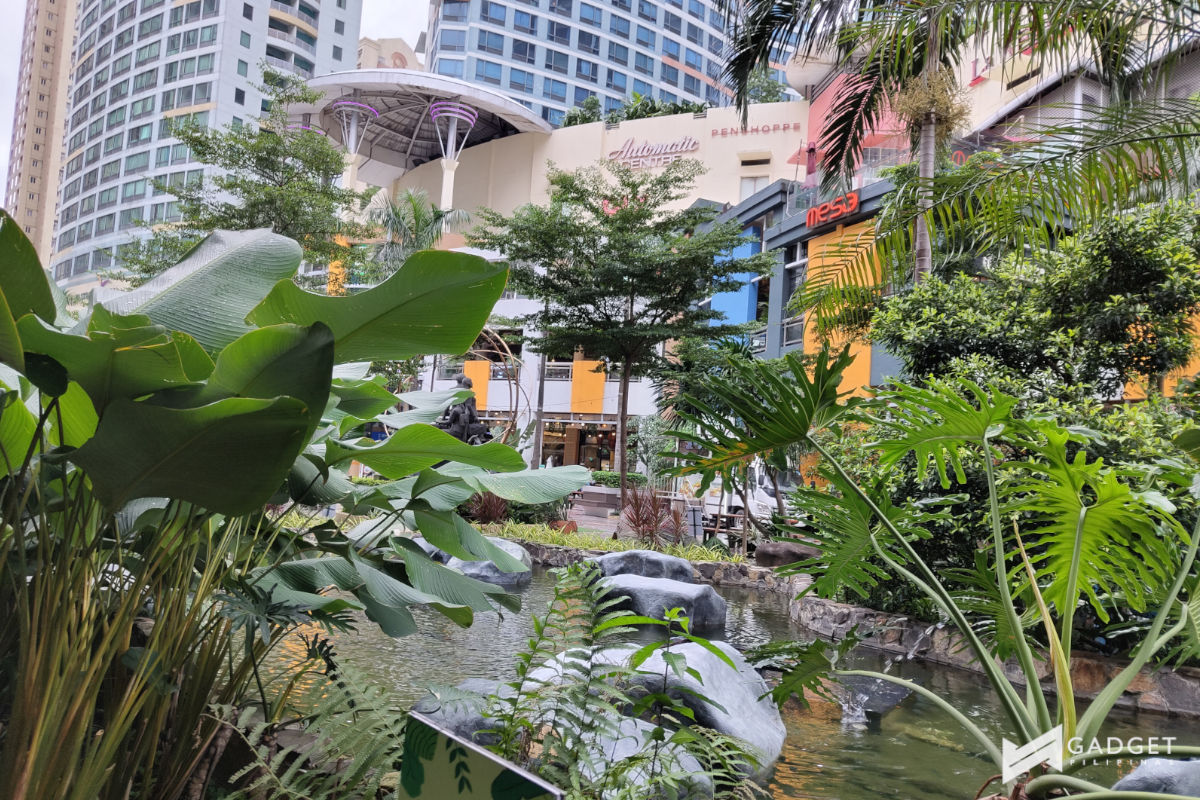
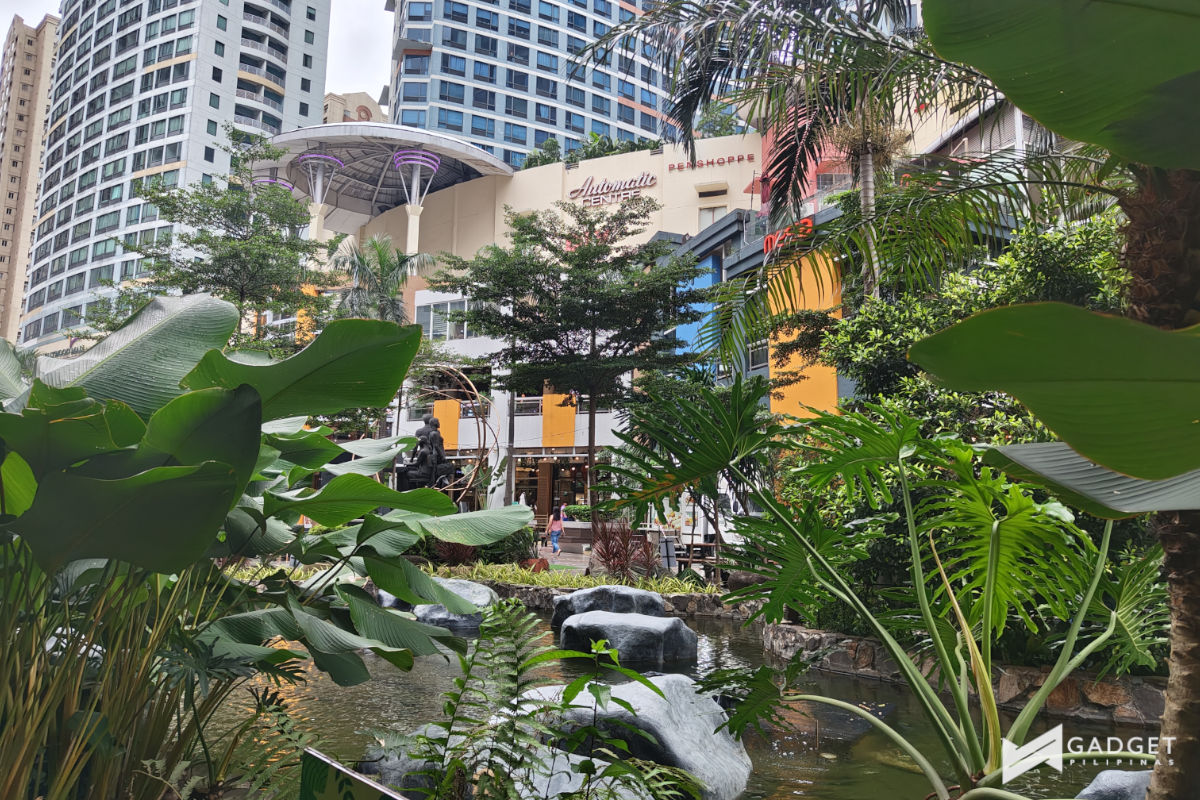
We see this as well with the photos below taken in Eastwood with a wide variety of foliage in the foreground and a variety of colorful buildings in the background. Details like the cream-colored building in the back and even the water are better colored on the Phone (2).
Here are other samples I’ve taken:
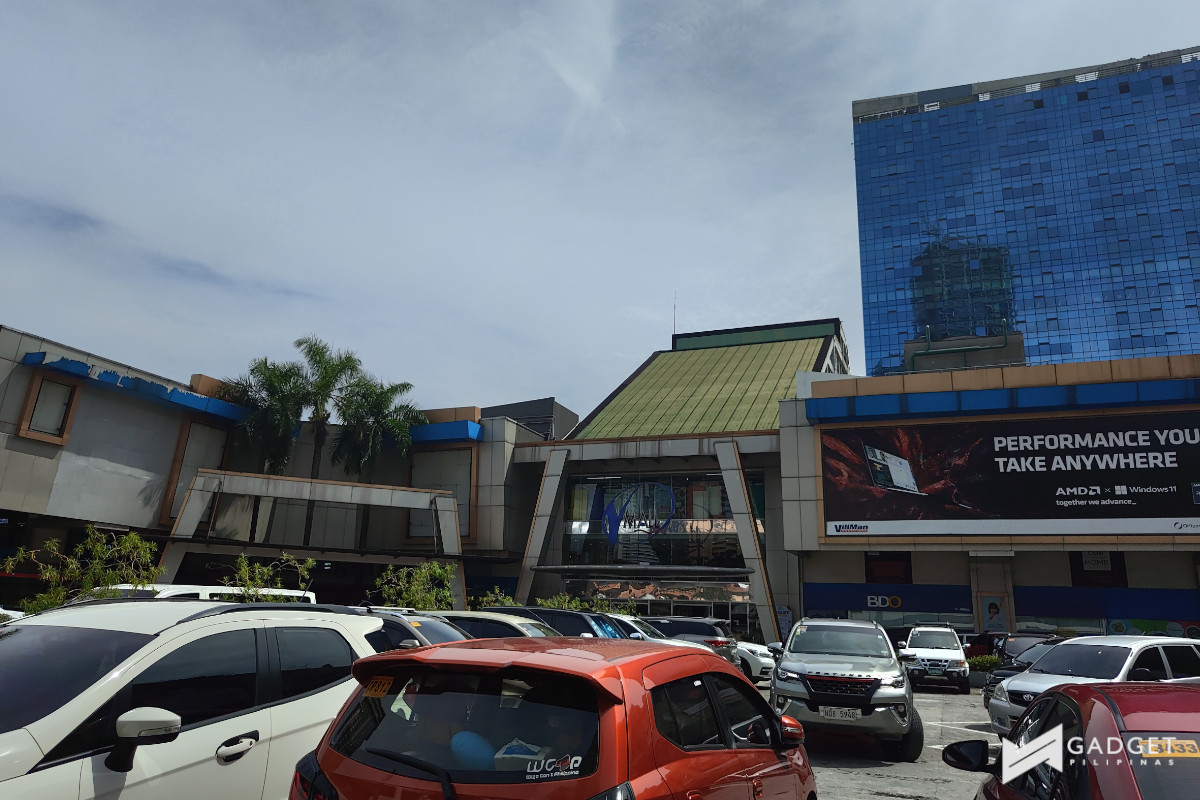
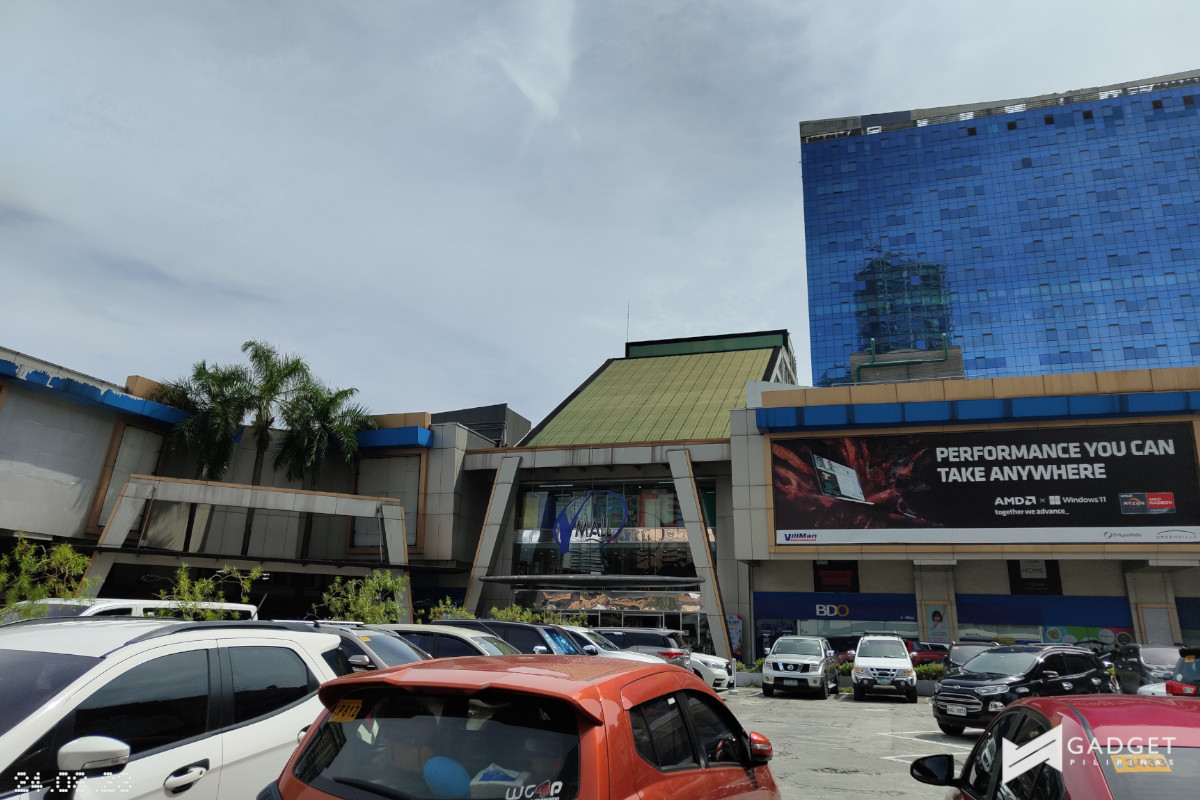
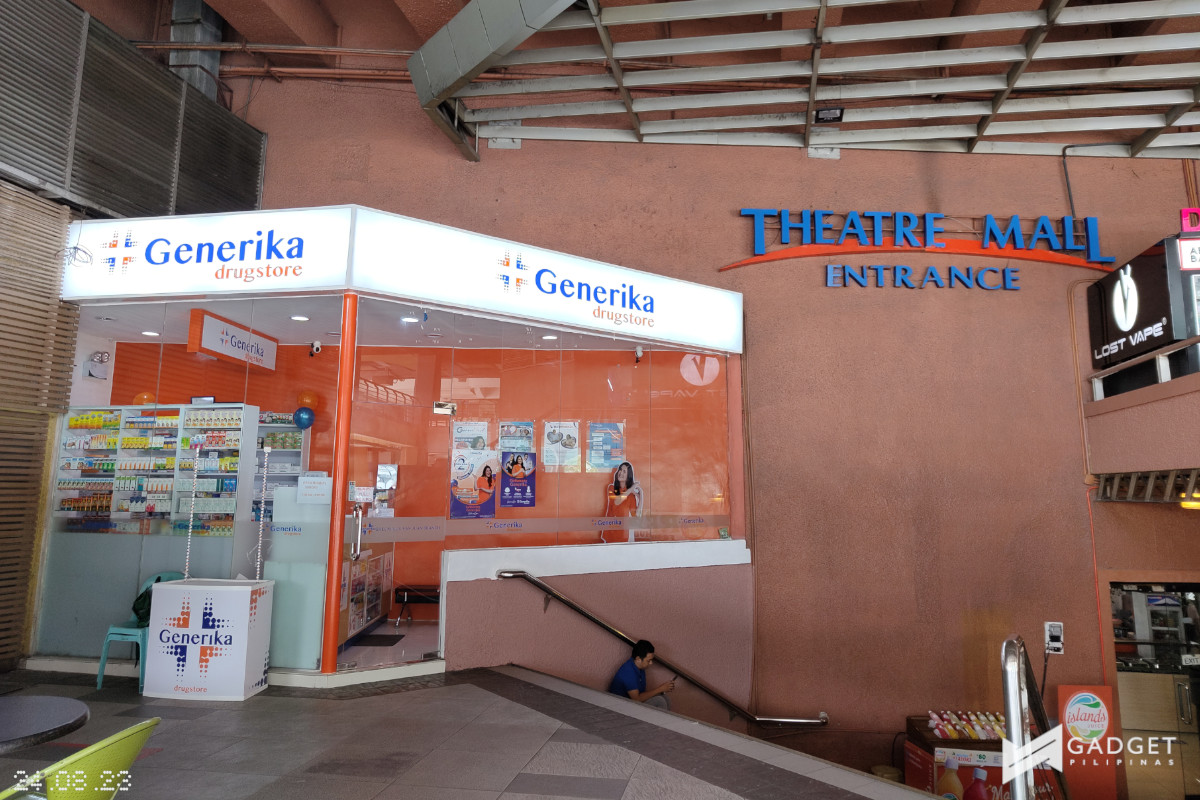
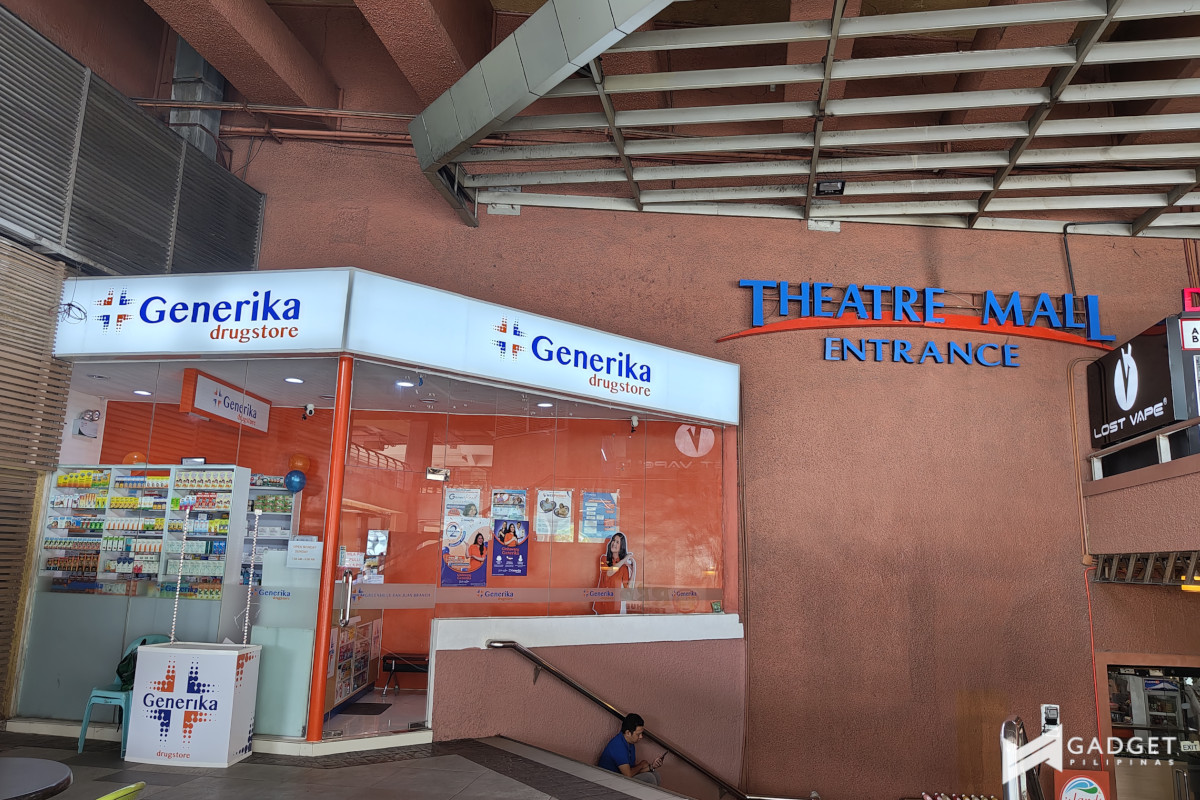
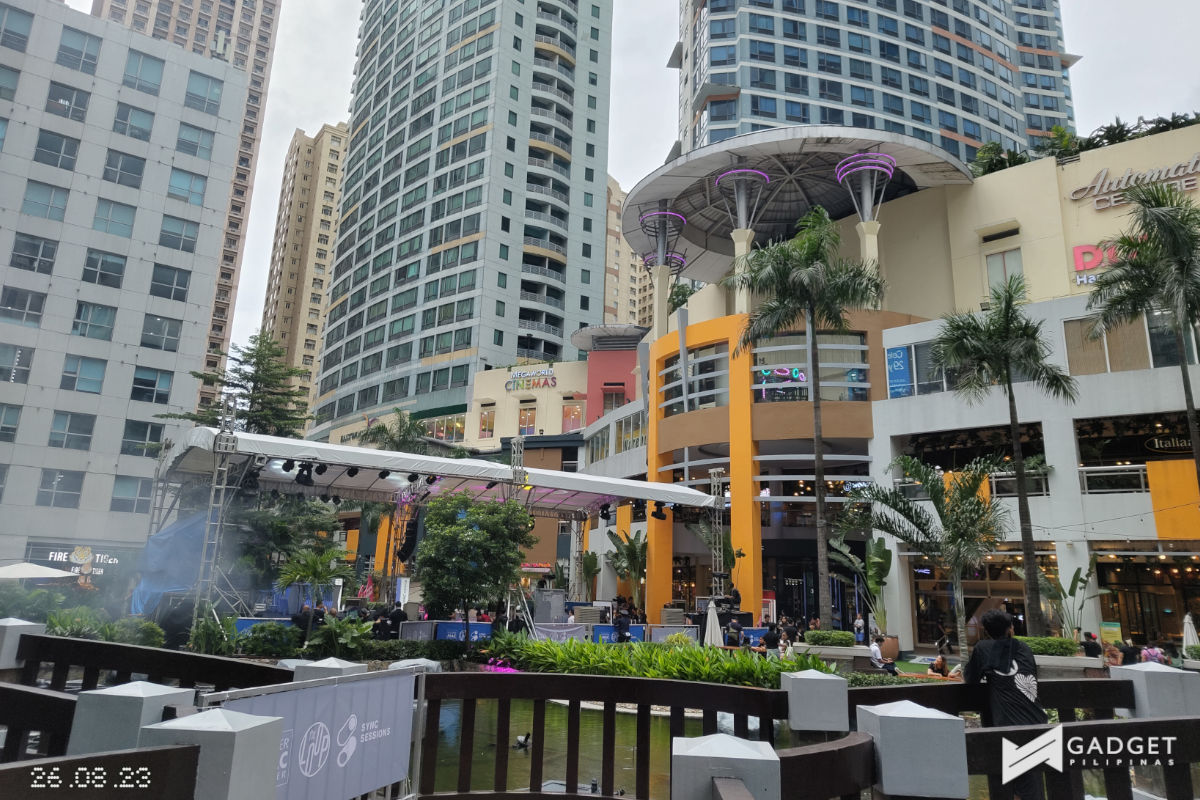
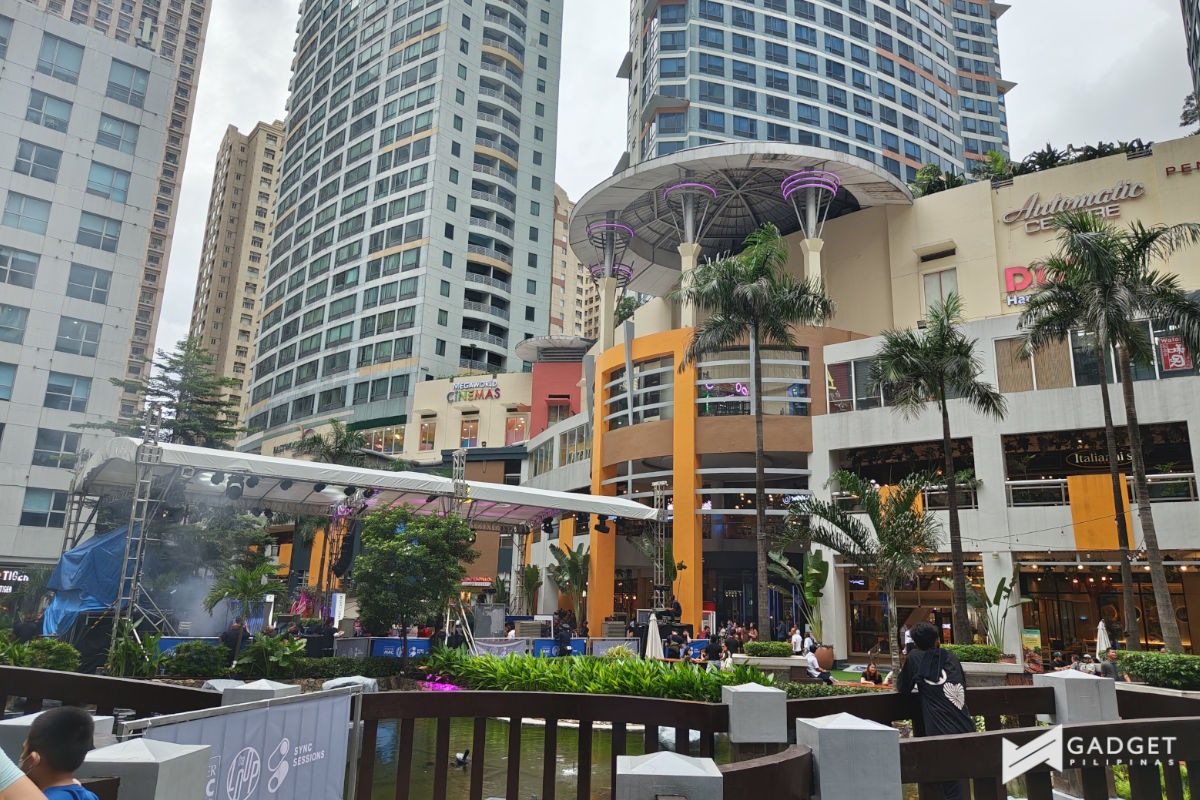
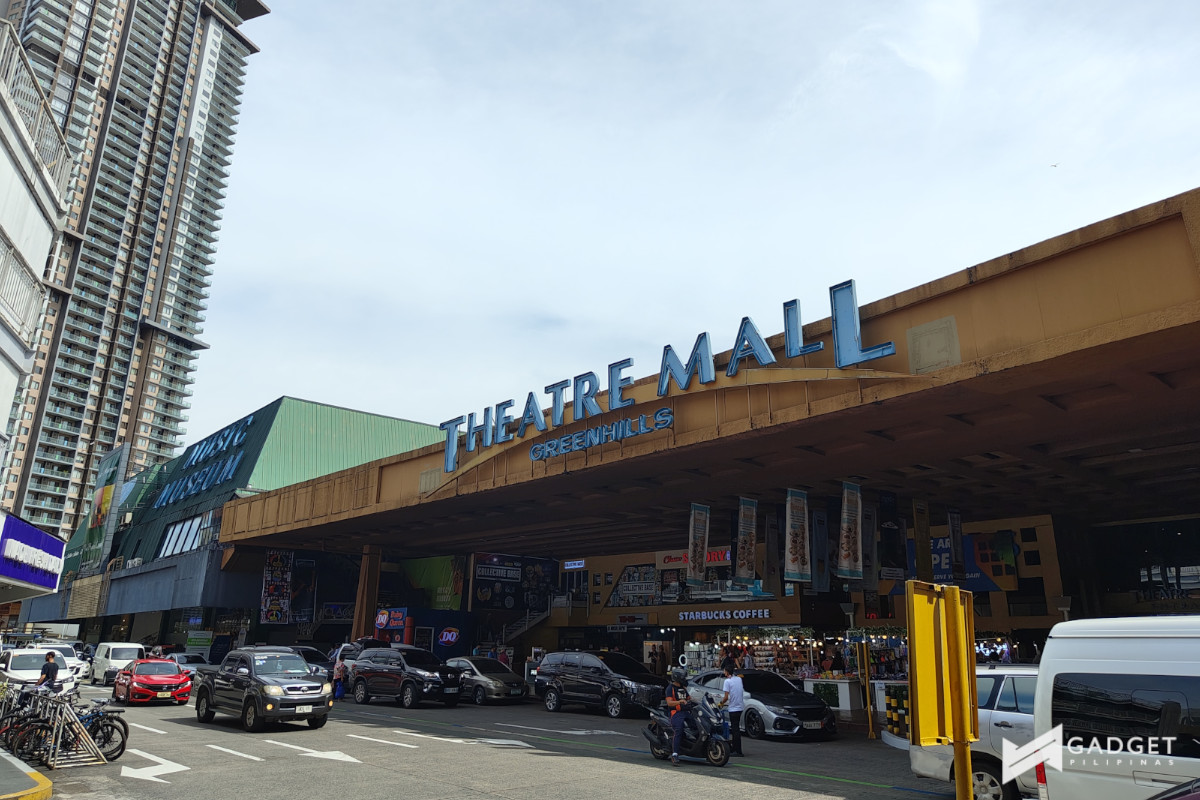
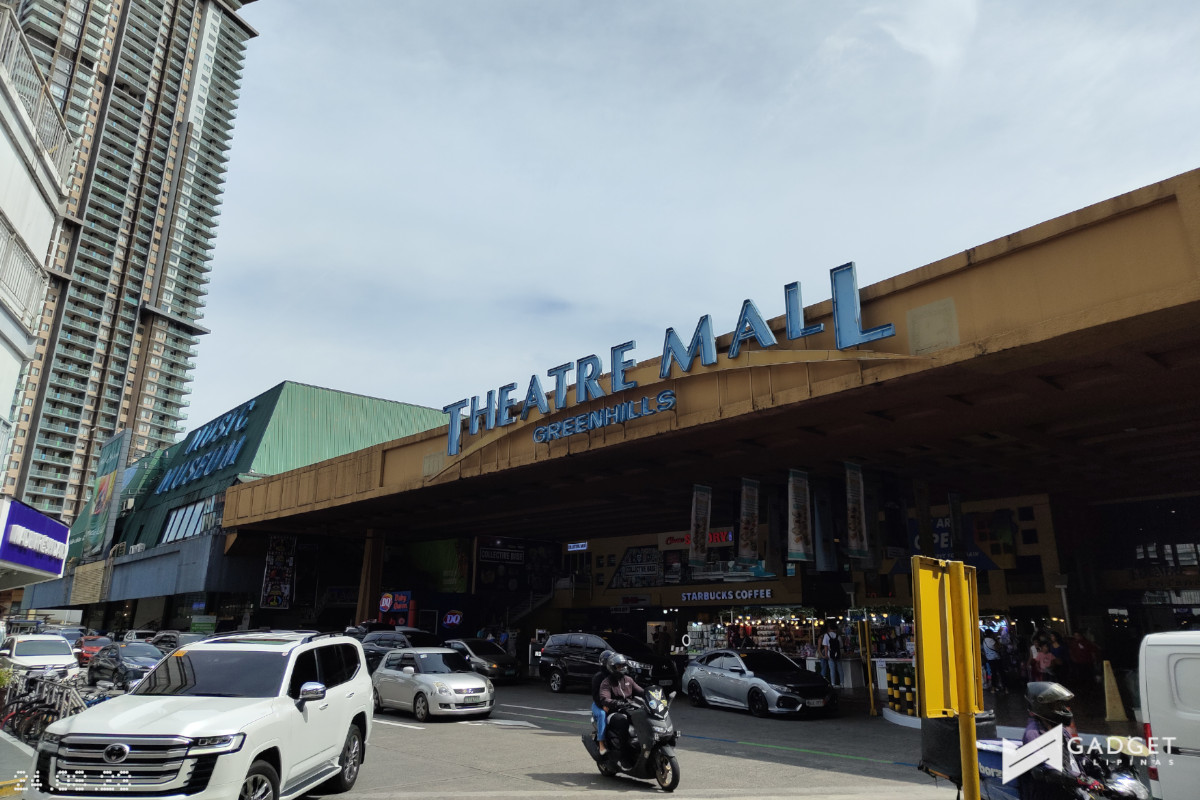
Nothing Phone (2) and Phone (1) – Ultrawide Camera
Despite sharing the same Samsung JN1 sensor for the ultrawide camera, the Phone (2) offers more vibrant shots. You can see this in the photos below with the orange Toyota Wigo looking more metallic with the Phone (2) shot compared to the dull color on the Phone (1).
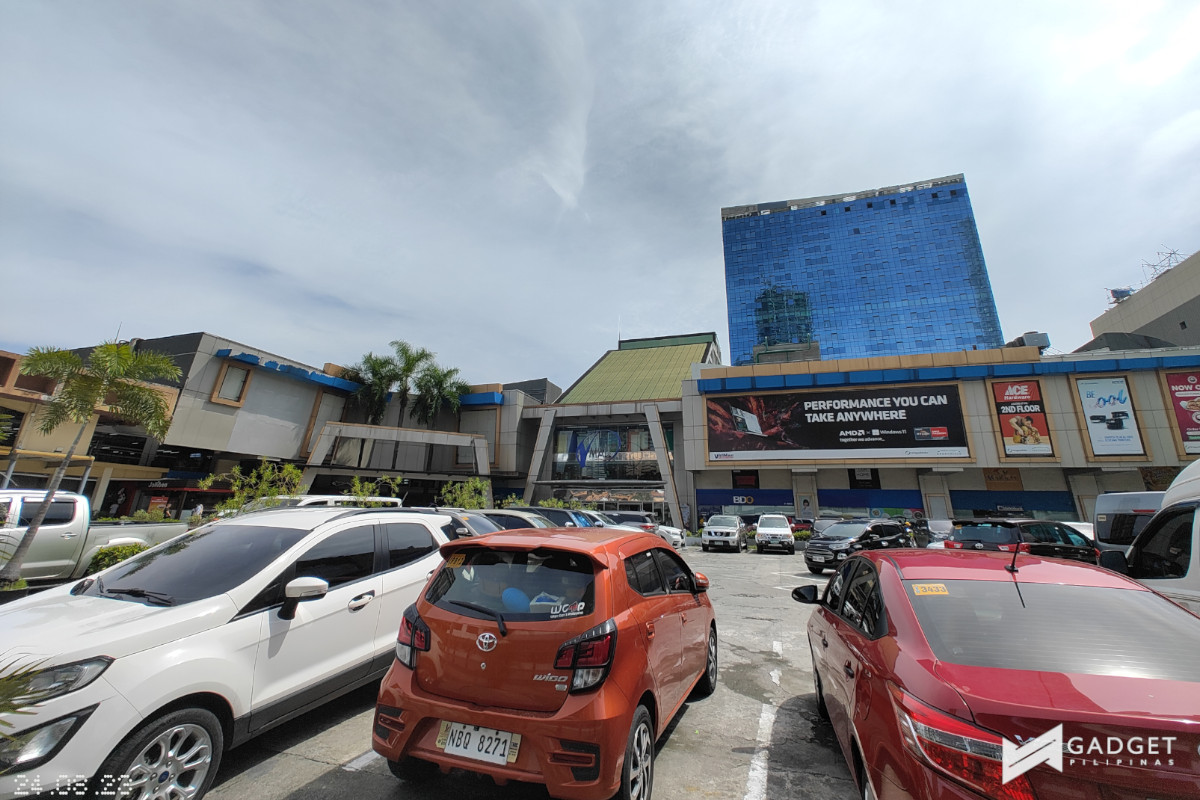
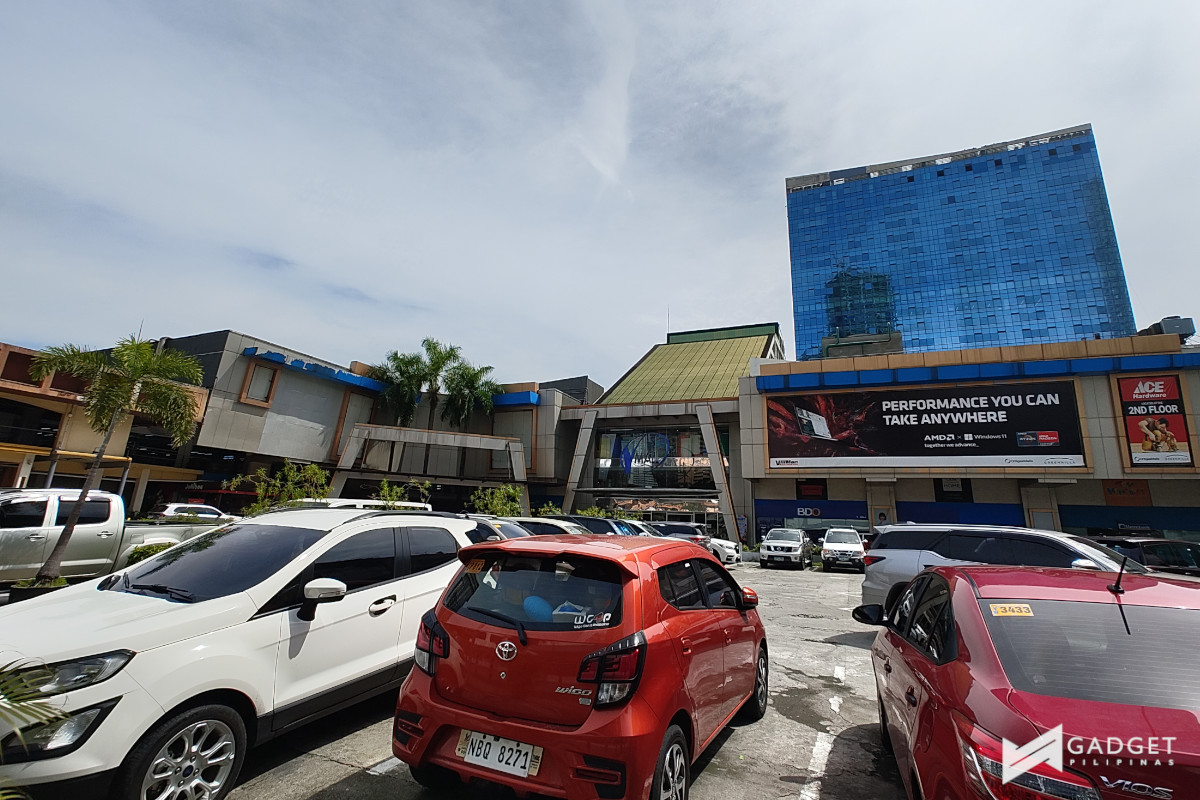
You can also see this even more in the shot below with the Theater Mall sign is light blue in the Phone (1) as well as its backdrop. Even in the background, the building on the right is a very dull green. These are all given life in the shots taken by the Nothing Phone (2).
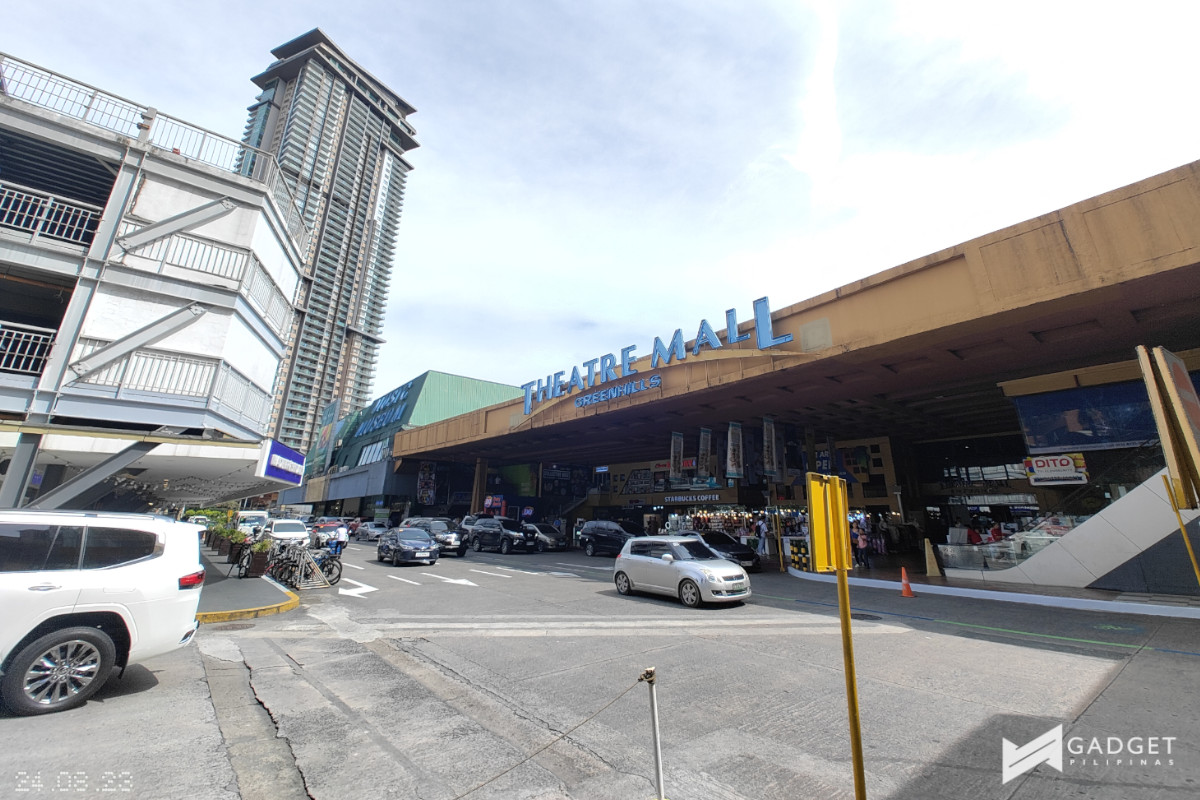
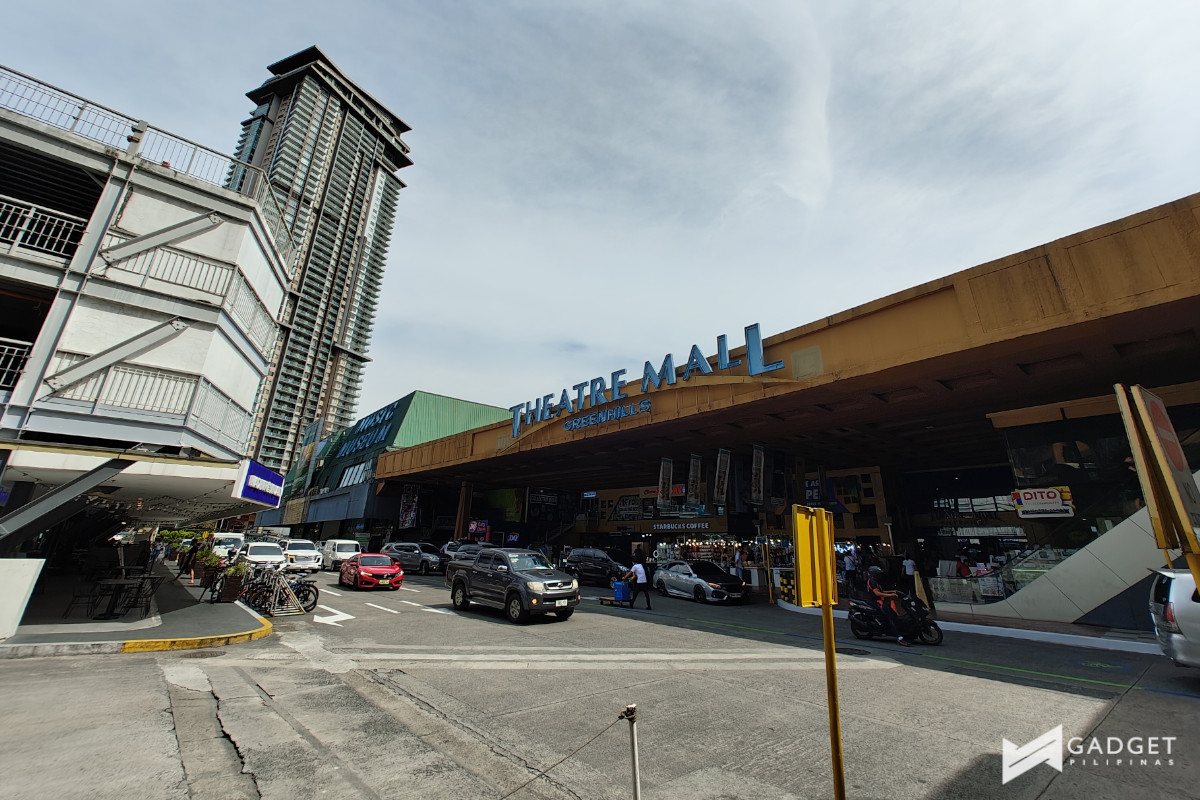
Here are other shots:
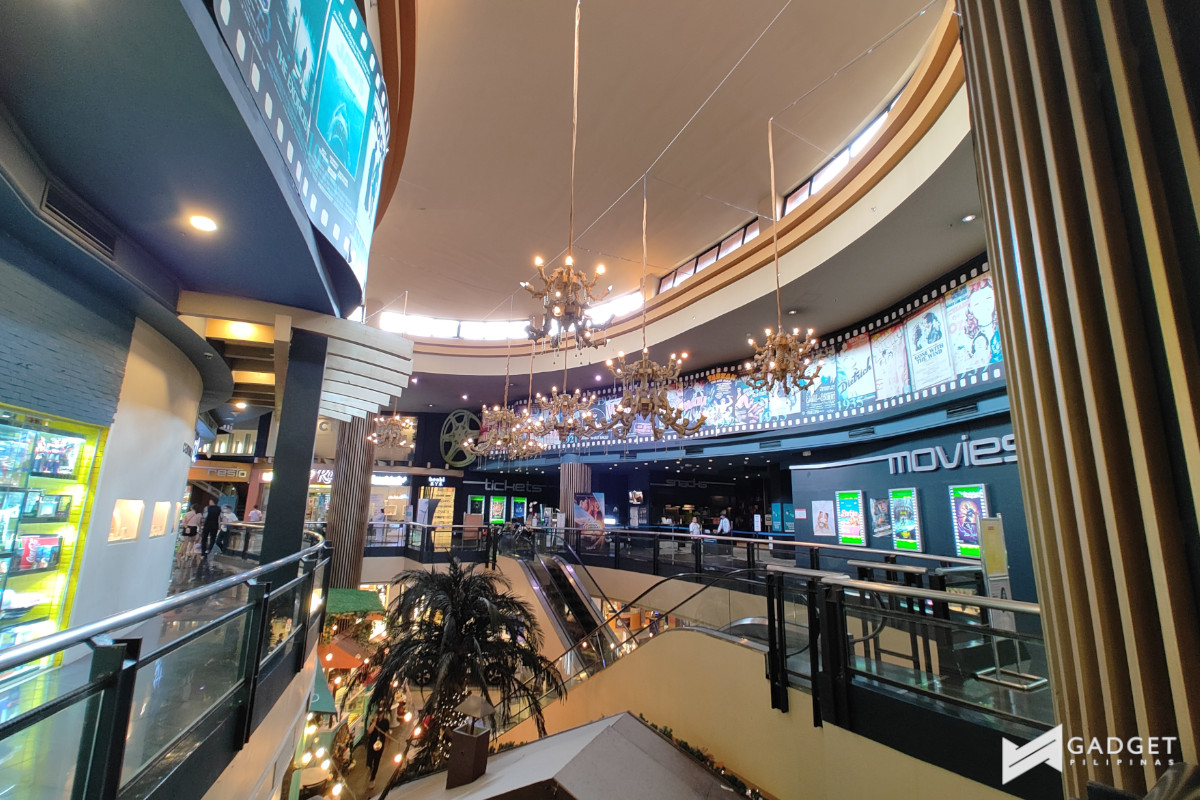

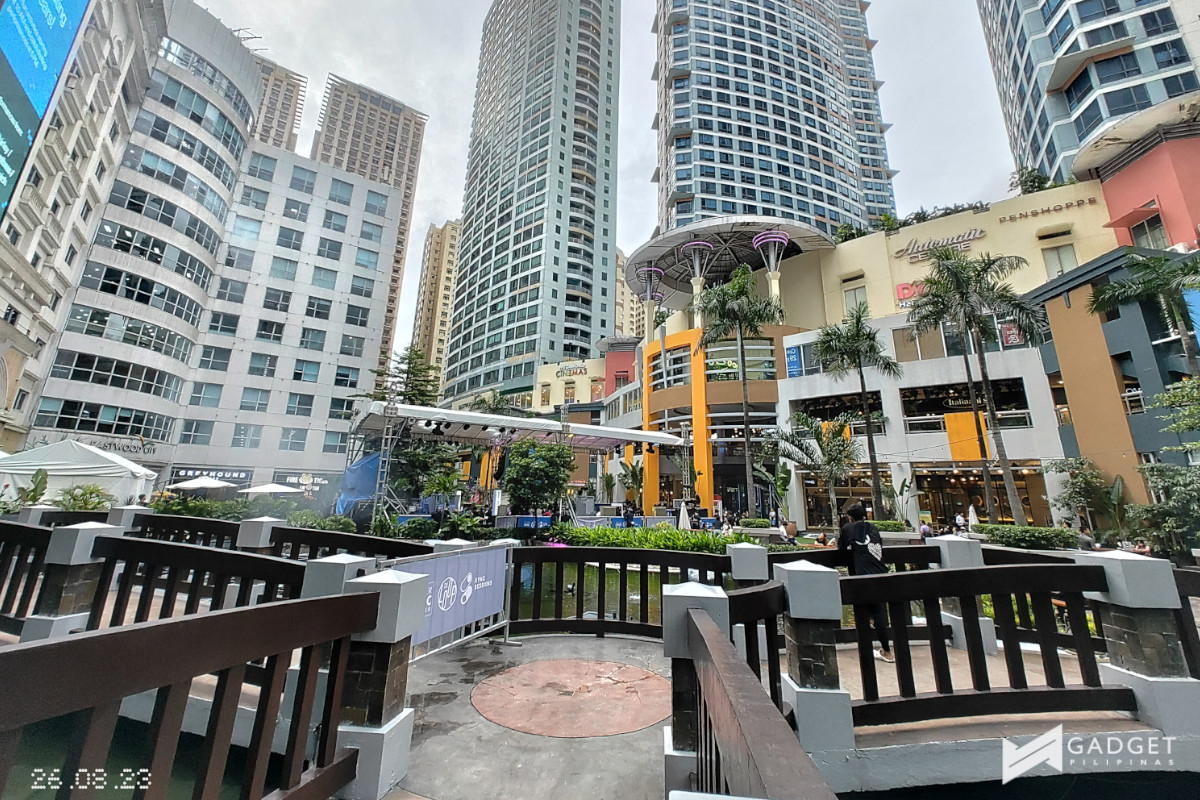
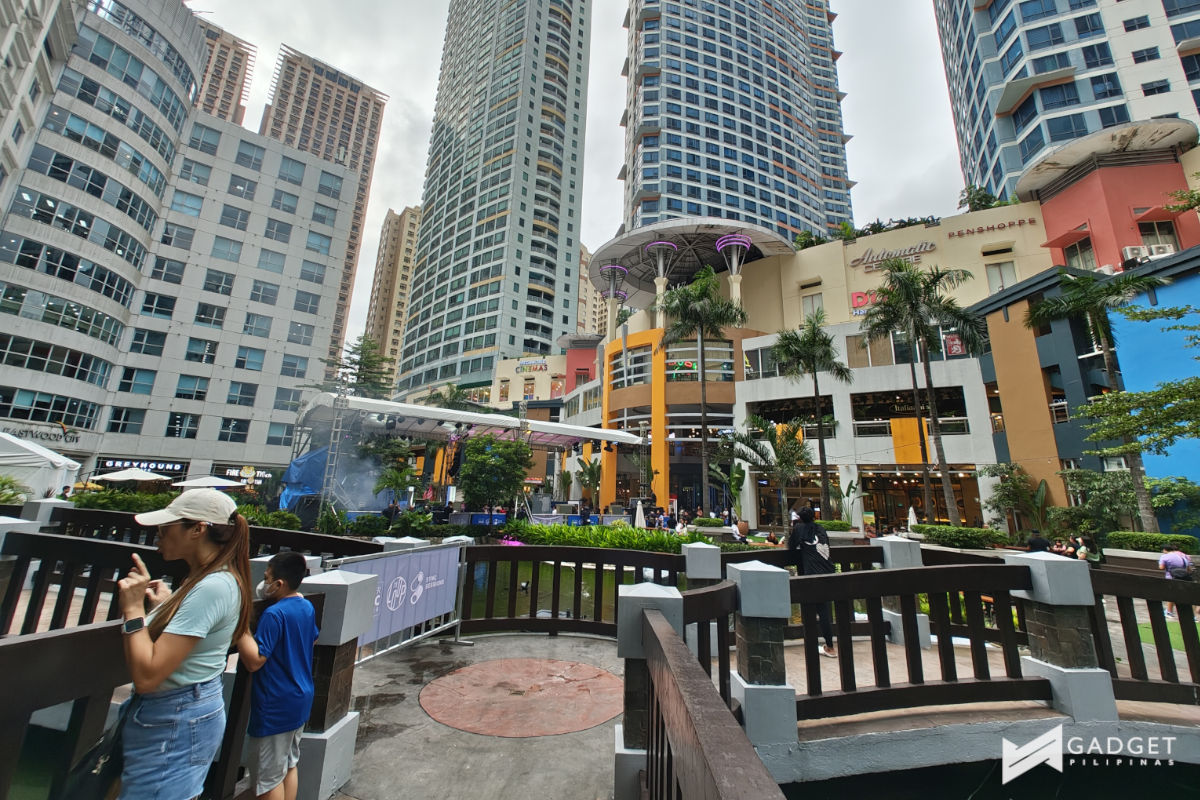
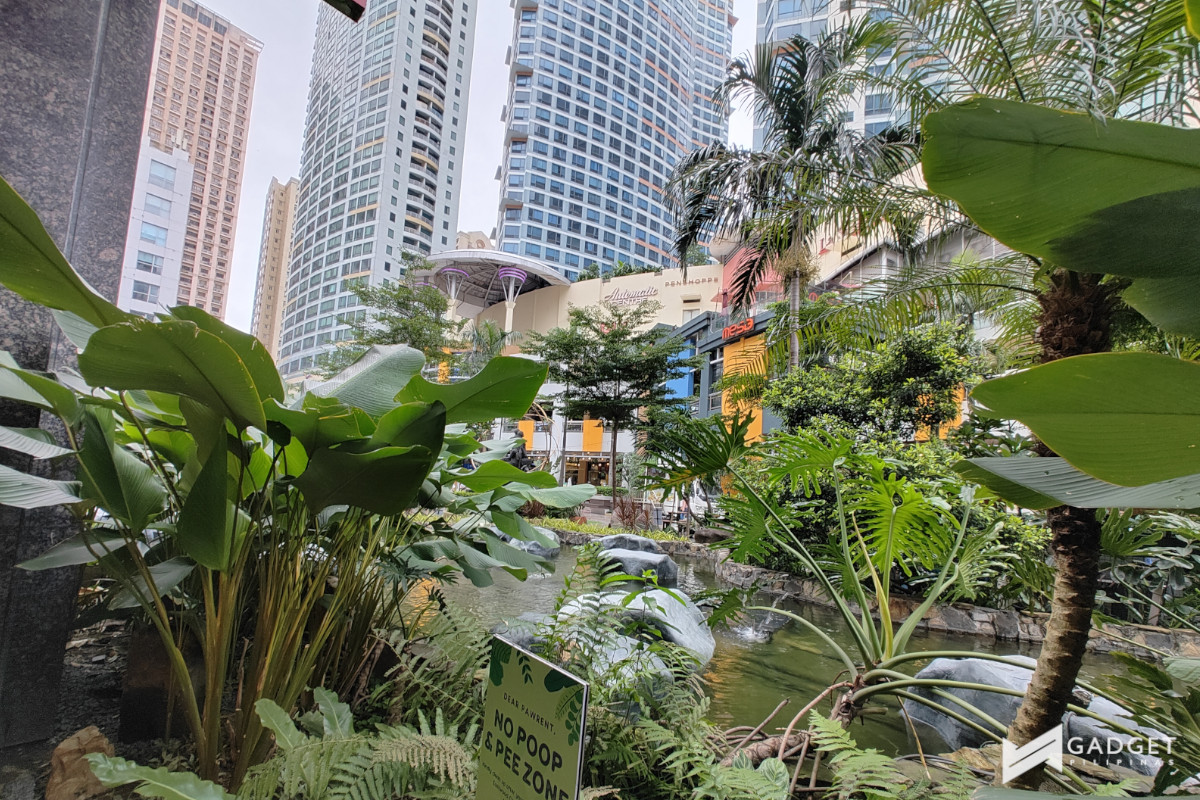
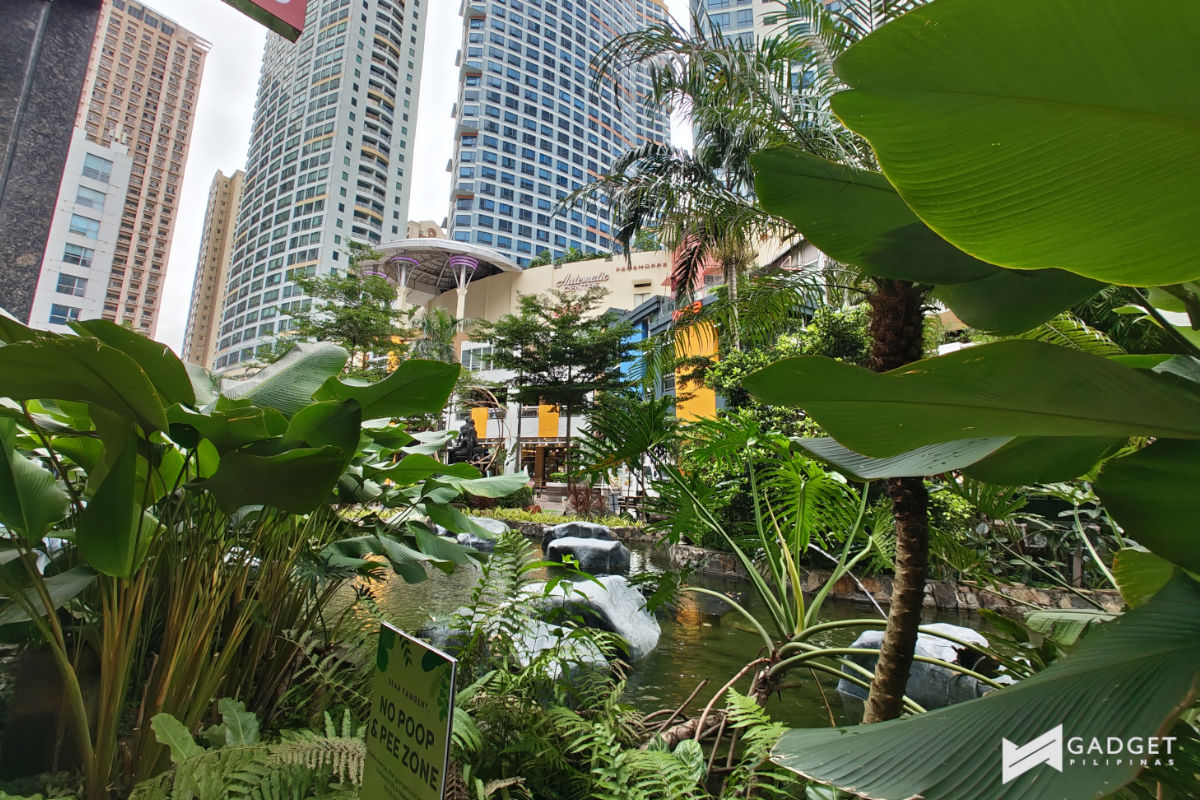
We’re glad to see that despite carrying over the Samsung JN1 sensor, Nothing has tuned it to offer livelier photos while keeping the same amount of detail.
Nothing Phone (2) and Phone (1) – Night Shots
The company seems to have also worked on the quality of photos taken in darker environments or with Night Mode on. Yes, I decided to lump these together but I have taken photos with Night Mode which I’ll get to later.


First, in dimmer settings, we still see the improved color and yellow hue that the Phone (2) offers. This may not suit everything but I, personally, wish there was an in-between the paler Phone (1) photos and the yellow hue. A sample of this is with the carbonara I had an event. The paler color of the Phone (1) makes it look like cream sauce pasta but also makes the photo look bland overall. On the other hand, the yellow hue, instead, makes the carbonara look like cheese and pasta rather than something with cream sauce.
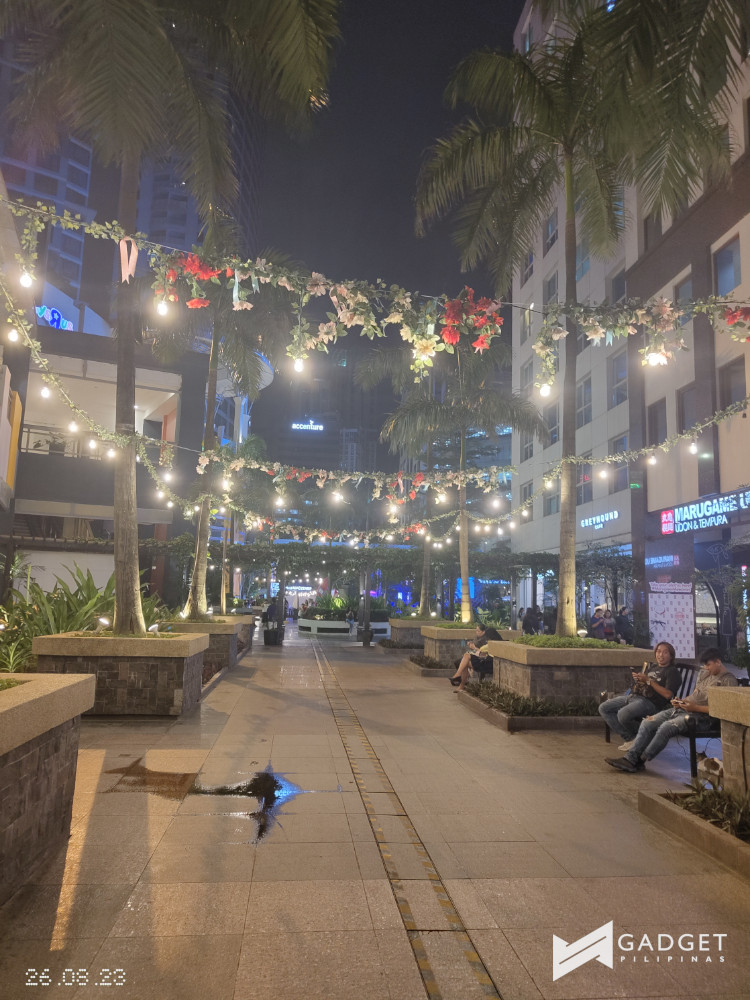

However, when applied to taking shots at night like scenery is drastically different. The color and dynamic range just offer more detail and higher-resolution photos and you can see this below. The hanging lights, in particular, don’t bleed out as much into their surroundings in the Phone (2) as in the Phone (1) shots.
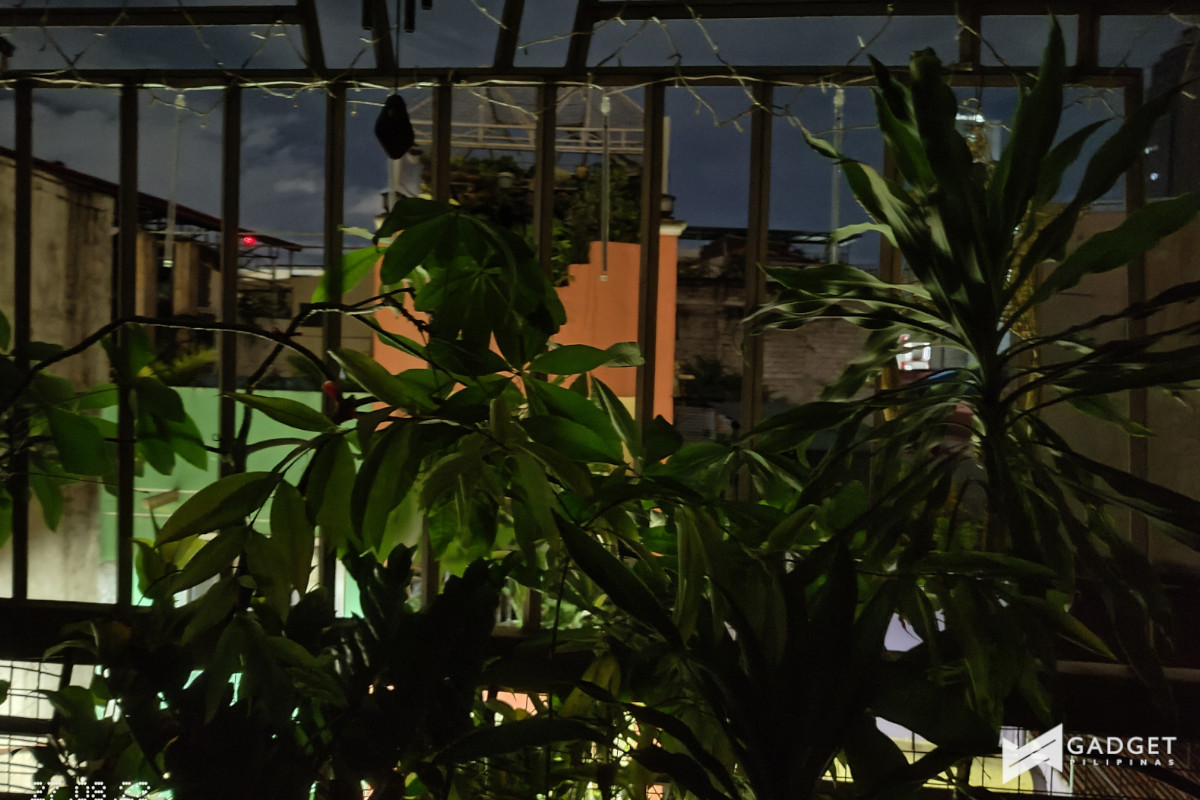
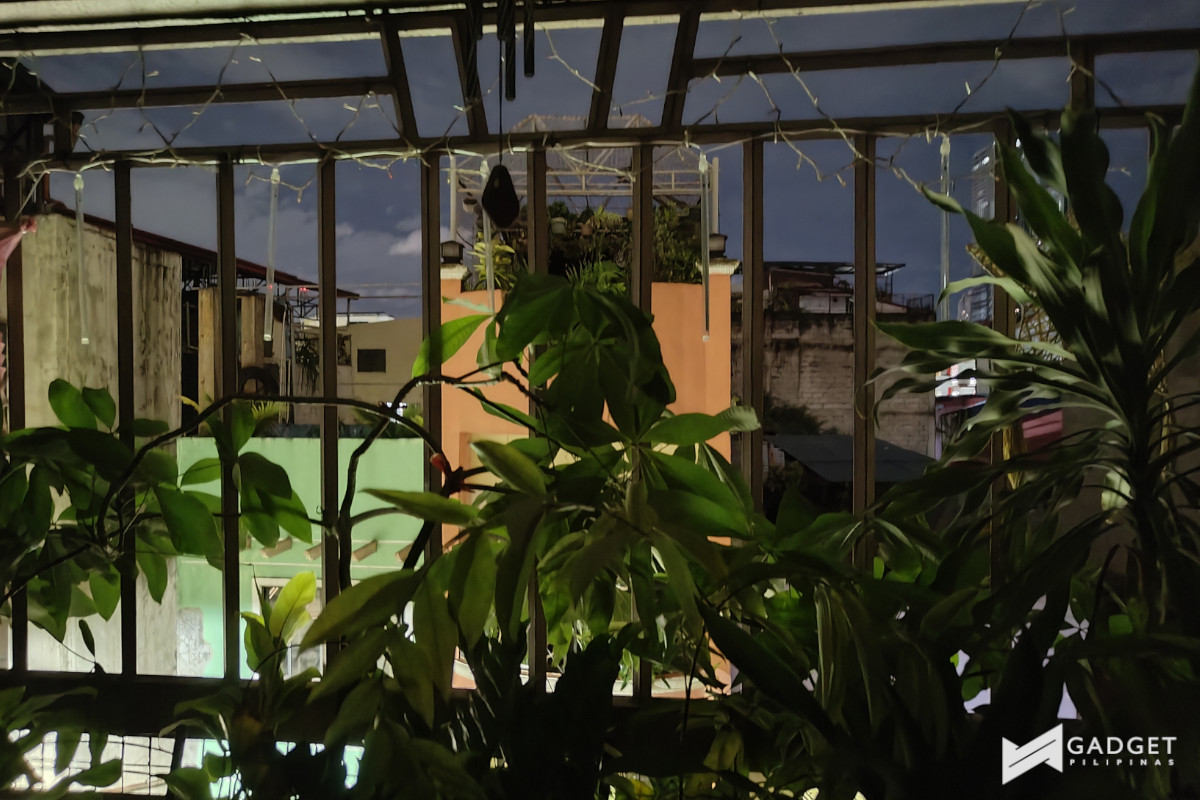
Night Mode photos are also improved with the Phone (2) with more detail and separation. You see this in the leaves below looking more vibrant and green, even at night.
Nothing Phone (2) and Phone (1) – Front Camera
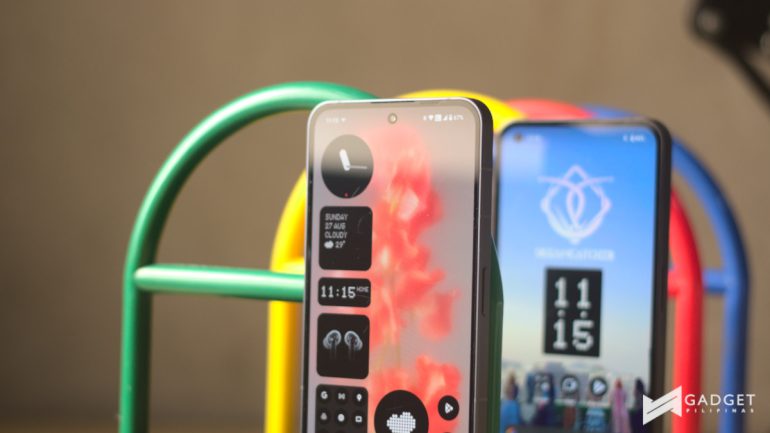
The Nothing Phone (1) was no slouch with its 16MP Sony IMX471 front camera but the Phone (2) is upgraded to a 32MP Sony IMX615 sensor.


Like the rest of the camera setup, the front camera in the Phone (2) is an upgrade that is seen in the photo quality. Not only does the upgraded lens shoot at a higher resolution, but it also has better color reproduction and more punchy colors. This is all while offering brighter photos overall.


The brightening on the Phone (2) though is sometimes more accurate with colors as you see above, my pink glasses are a bit pinker with the Phone (1) shot.
Nothing Phone (2) and Phone (1) – Portrait Mode
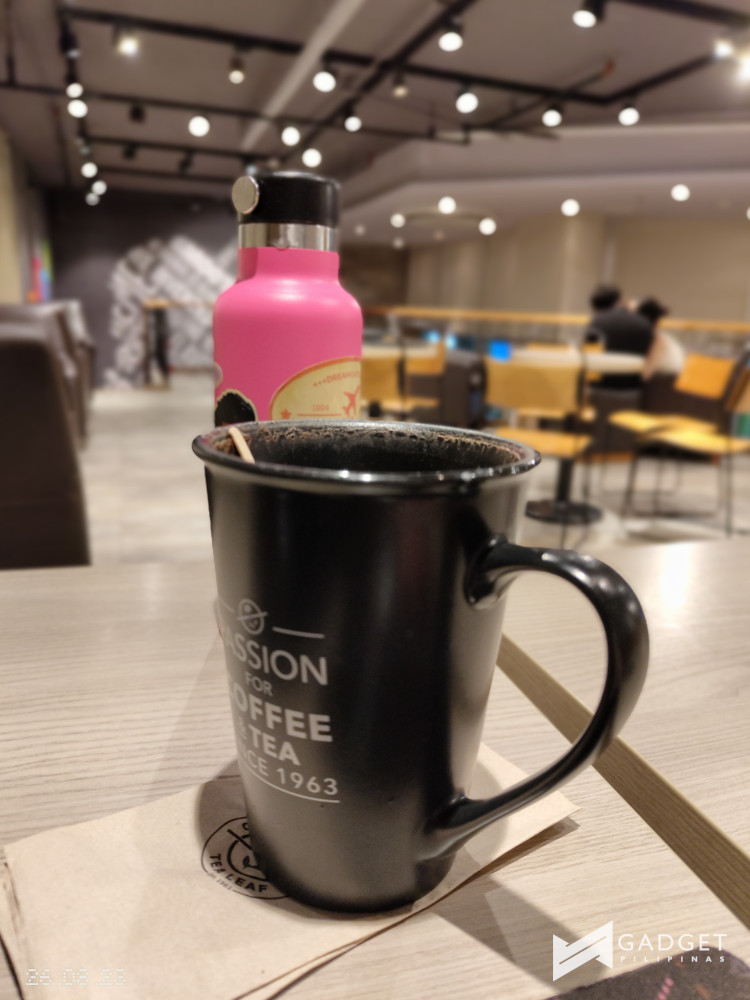
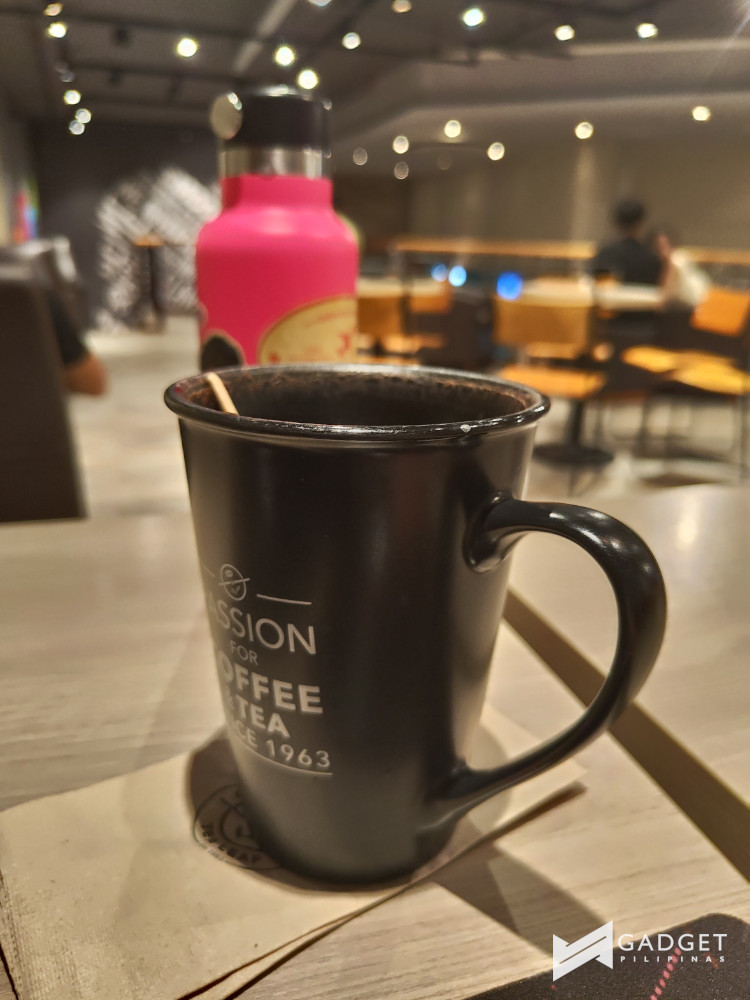
Portrait mode is quite interesting for both the front and back of both devices though. The rear setup performs impressively despite lacking a depth sensor. Unsurprisingly though, the quality of the photos was pretty much the same as the main camera.


Where the struggles lie though are with the front camera portrait mode. I like using my, most times, wavy hair as a good test for portrait selfie photos. Both phones struggled with separating my hair from the background cleanly, regardless if it was quite a busy background or a pretty dull backdrop.

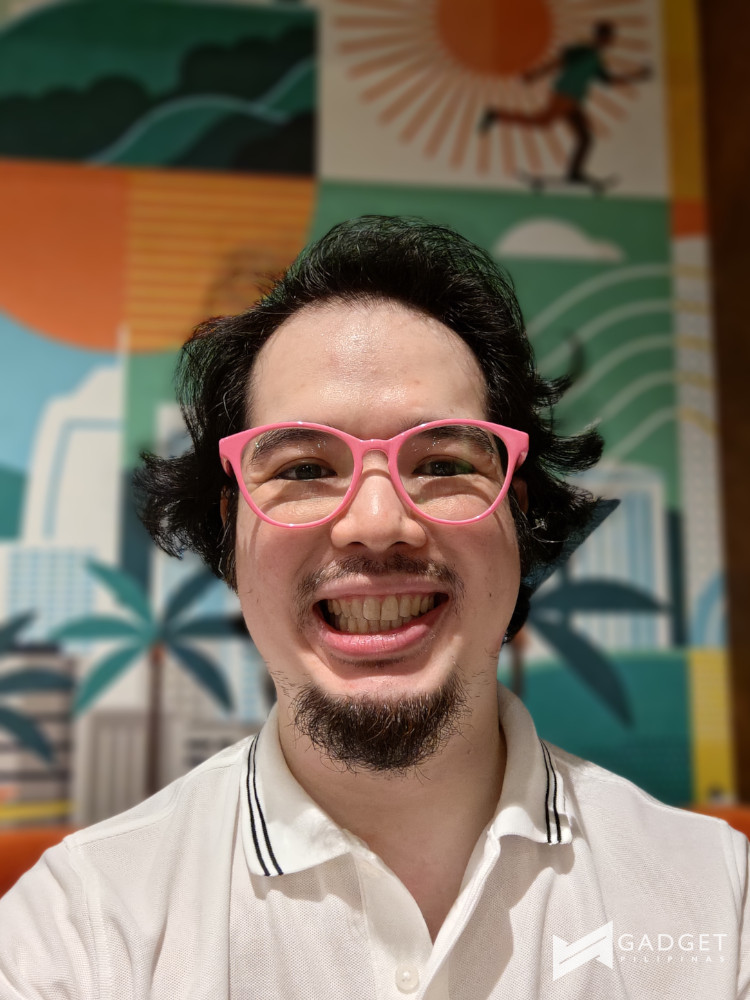
However, the Phone (2) gives you more blur on the background even with the same f/2.45 aperture in Portrait mode. Again, it’s not the cleanest out there, but I hope that’s something that Nothing can fix either with software updates or in the next iteration of the device.
Nothing Phone (2) and Phone (1) – Video Sample
The Nothing Phone (2) has also taken strides in video recording than the Phone (1) with the former being able to record 4K video at 60 fps and Live HDR being available at 4K at 30 fps. The latter, on the other hand only records up to 4K video at 30 fps and Live HDR at 1080p at 30 fps.
Nothing Phone (1)
As I’ve mentioned many times in this article the color reproduction of the Phone (2) is just better and more accurate compared to its predecessor even in video recording.
Nothing Phone (2)
Nothing Phone (2) and Phone (1) – Front Video Sample
Lastly, the front video. The Nothing Phone (2) records up to 1080p at 60 fps compared to the maxed-out 1080p at 30 fps on the Phone (1).
As with the front shots we mentioned earlier, the Phone (2) has better quality. Even my pale skin has a bit more color on the second-generation device compared to its predecessor.
Here are videos I’ve taken on the devices:
Nothing Phone (2)
Nothing Phone (1)
Conclusion
Both the Nothing Phone (2) and Phone (1) hold their own in the camera department but you can clearly see the strides that the company has made to improve the optics in its second-generation phone.

From the more vibrant colors and better detail, the Phone (2) is unsurprisingly a worthy successor to the Phone (1). Let’s not forget the ability of the Nothing Phone (2) to shoot video at up to 4K at 60 fps on the rear camera and up to 1080p 60fps on the front camera.
Nothing has worked hard to bring out a better device with the Phone (2) and it definitely shows. While it still has some catching up to do with companies like Samsung and even Huawei, it’s good to see there are improvements even in the camera department between the two generations alone.
We’ve reviewed both the Nothing Phone (2) and Phone (1) previously. Read our Phone (2) review here and the Phone (1) review here.
Both devices are available locally at Digital Walker and via the official Nothing PH Lazada and Shopee stores.
Ram found his love and appreciation for writing in 2015 having started in the gaming and esports sphere for GG Network. He would then transition to focus more on the world of tech which has also began his journey into learning more about this world. That said though, he still has the mentality of "as long as it works" for his personal gadgets.

